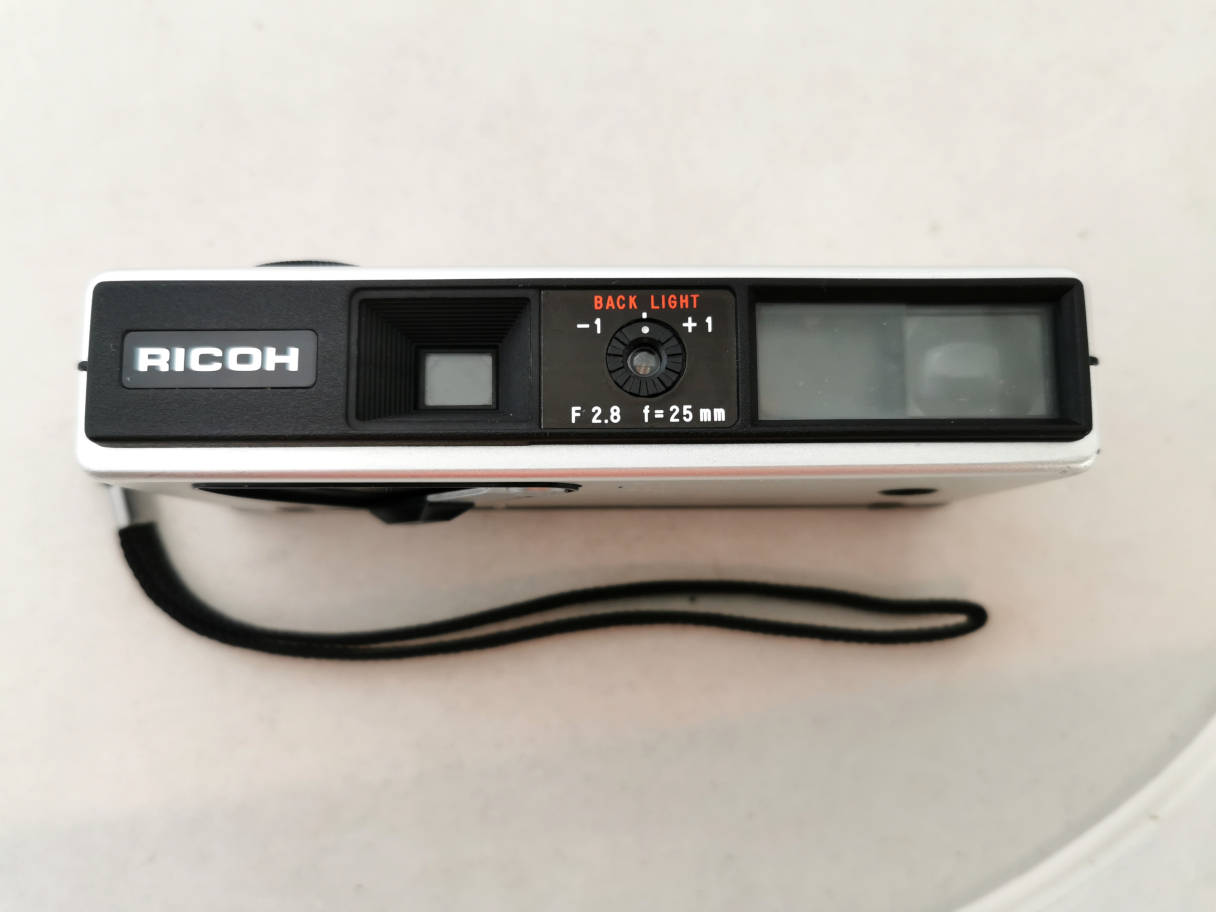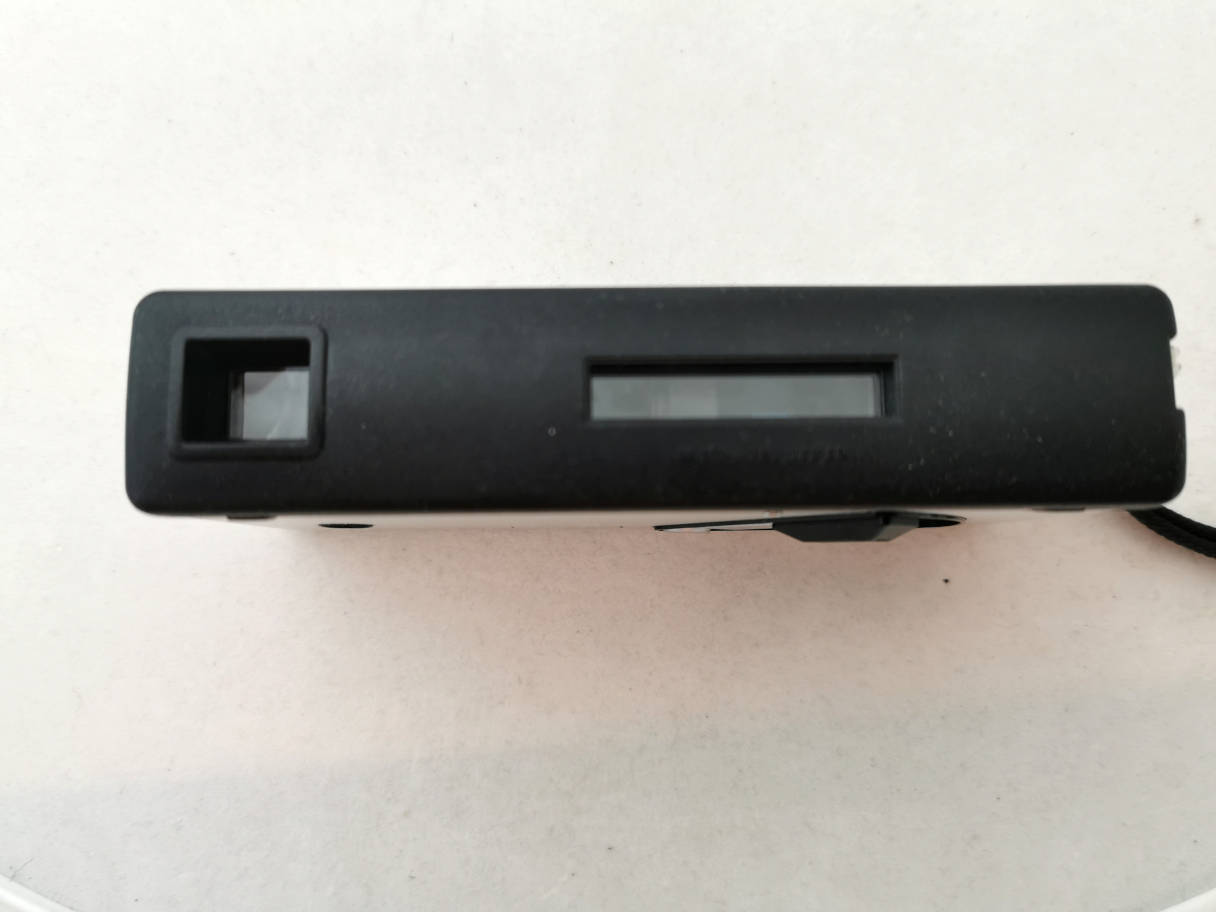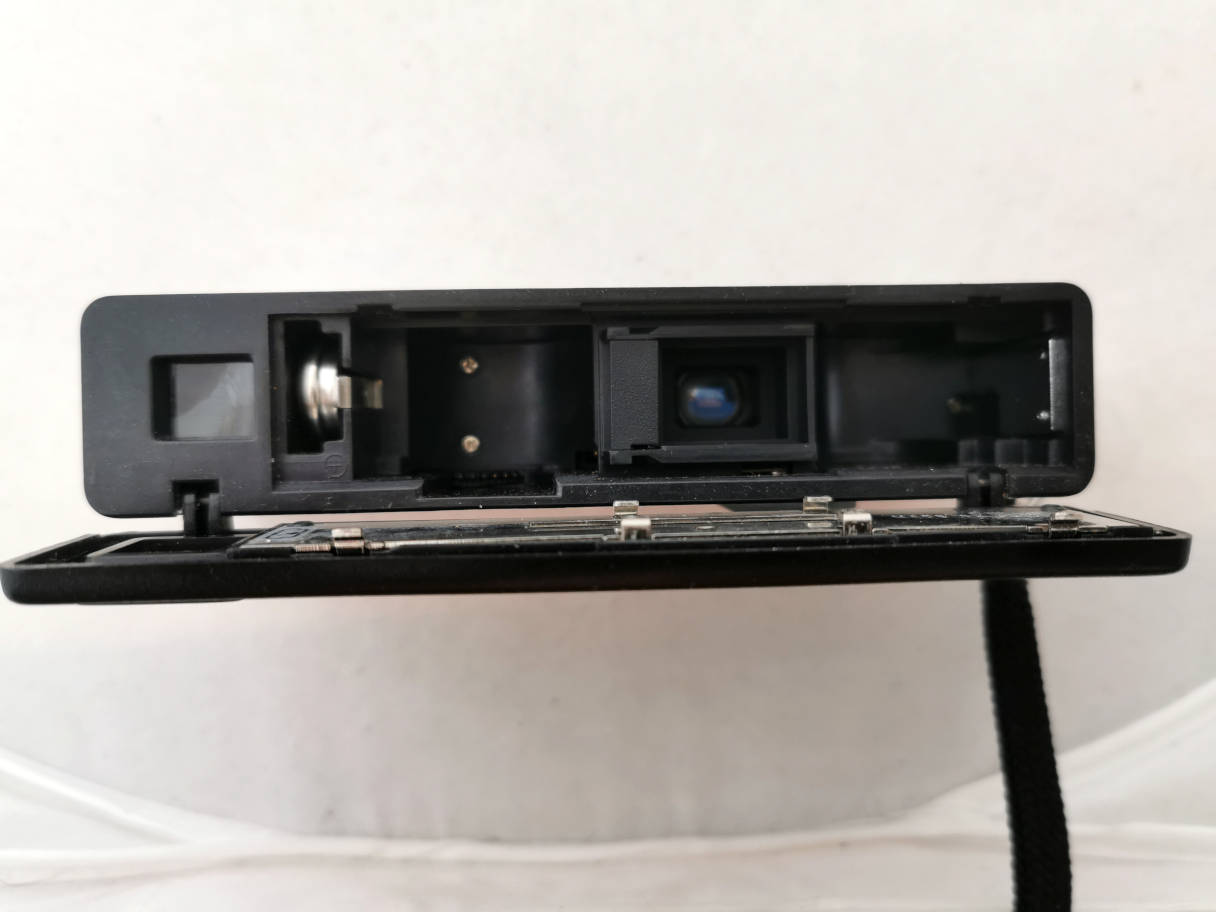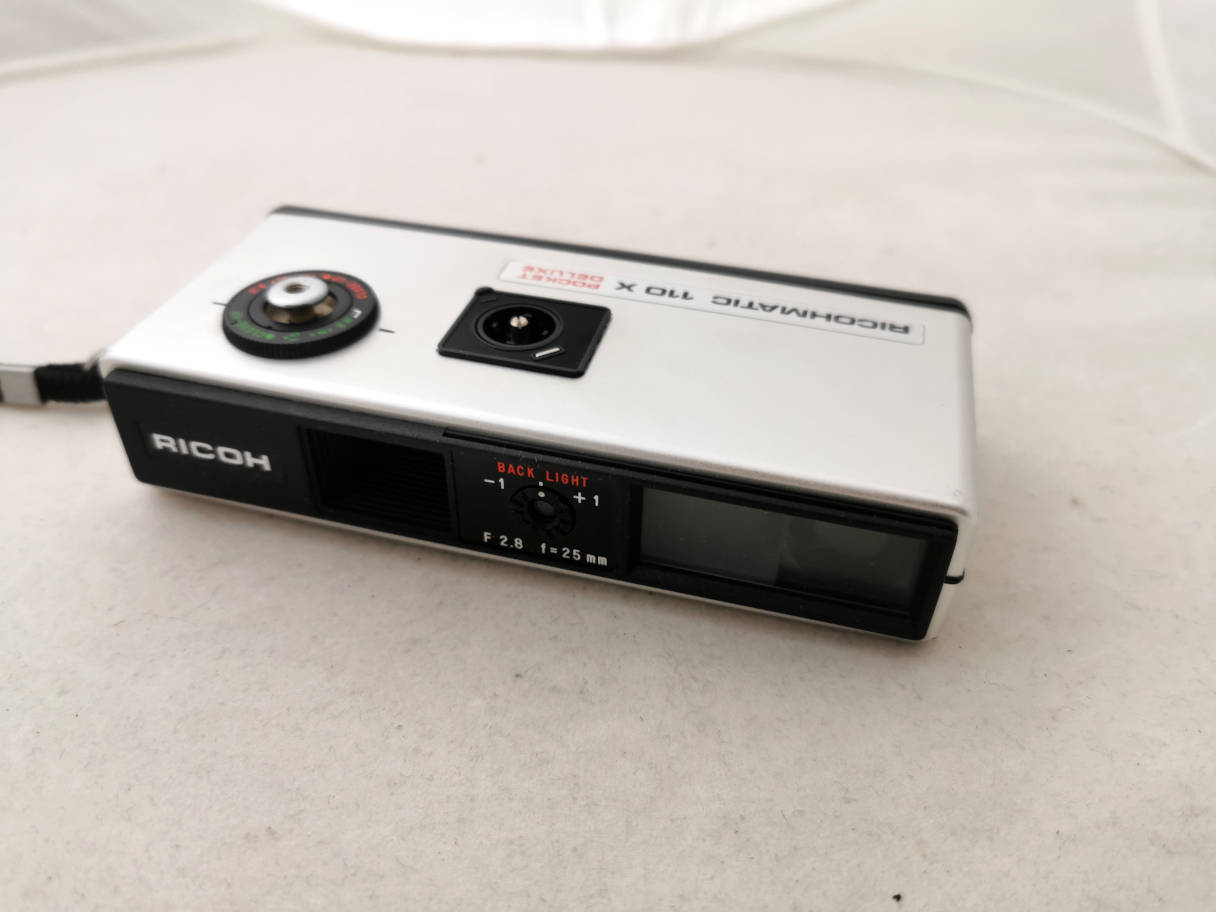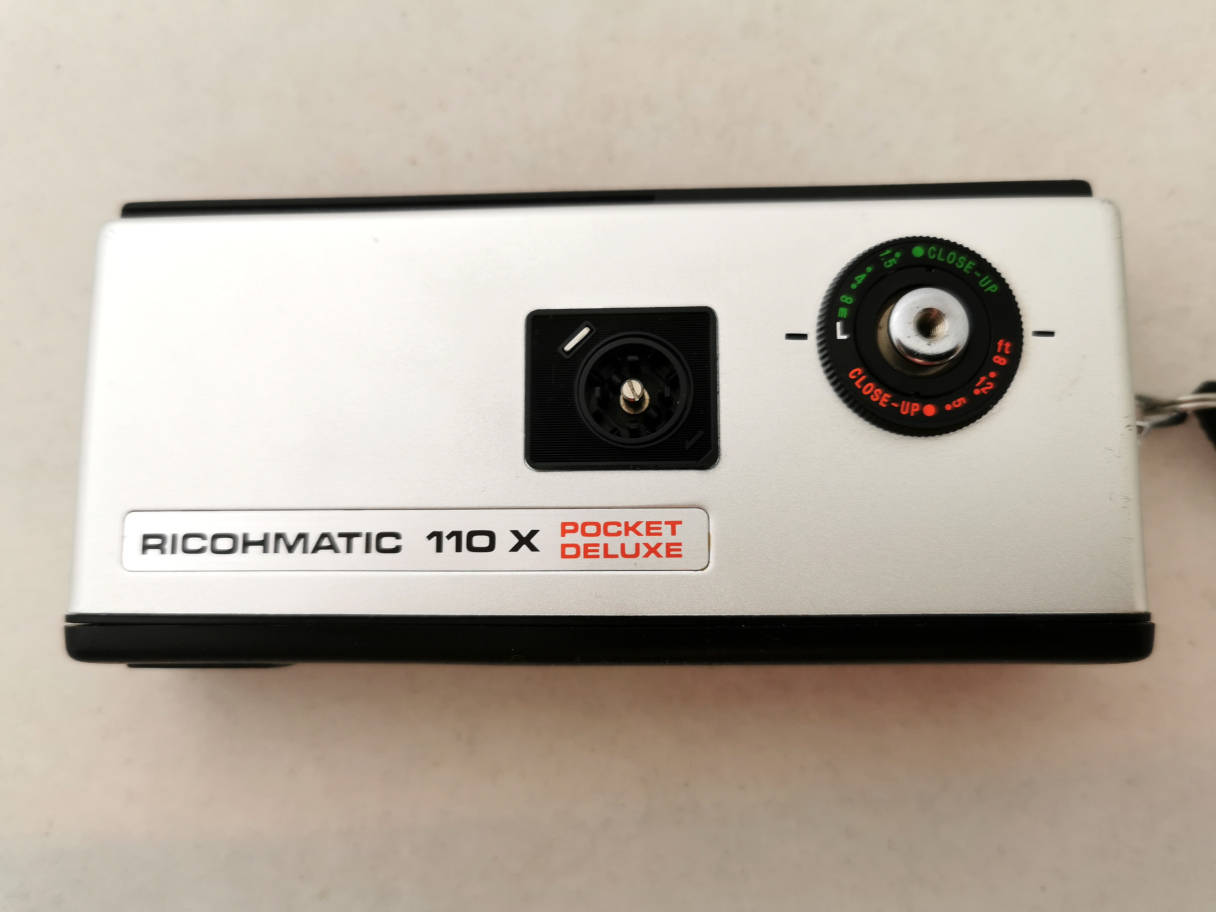
Seen from above. X-cube socket. If you put a cube, the camera sets to 1/30 speed and the aperture couples to the distance setting. Distance setting ring around the shutter release with a cable release socket. Set to "L" the shutter release is blocked, but the camera can't be switched off. So the CdS cell always works. To prevent battery drain, put the camera into a dark case and take out the battery when no film is in the camera.
